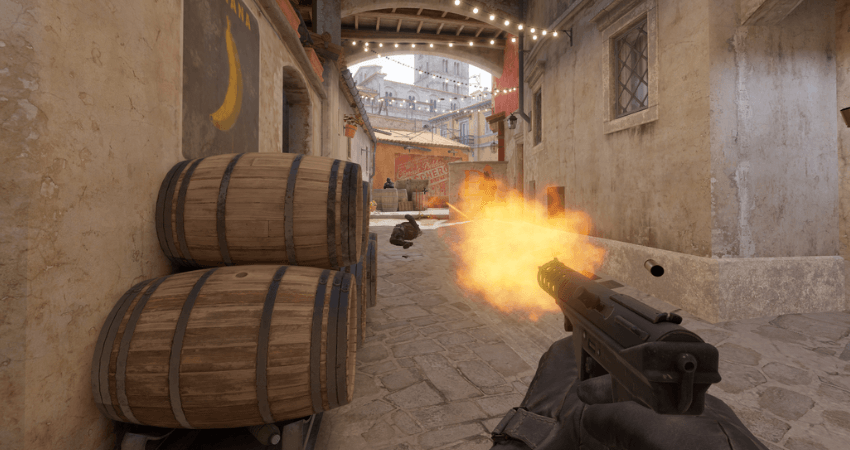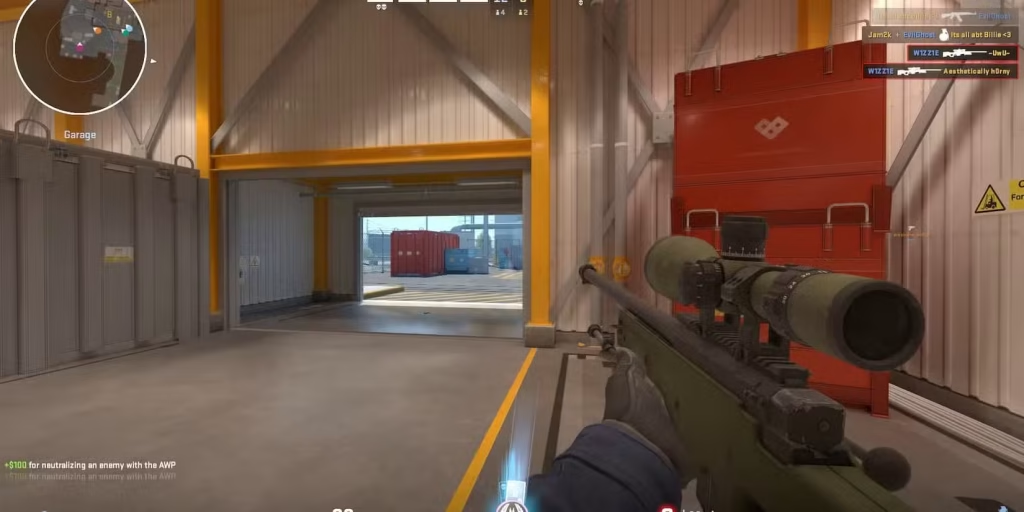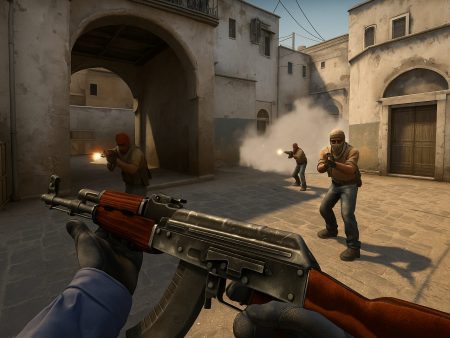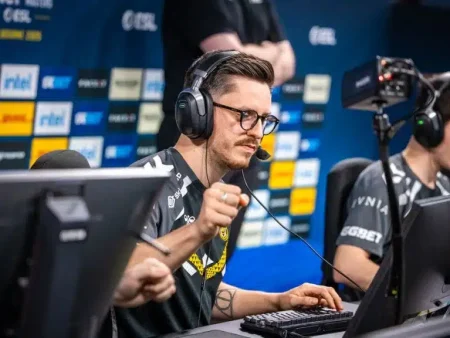Discover the pros and cons of Solo Queue vs 5-Stack in competitive gaming. Learn which is better for climbing ranks, improving skills, and maximizing fun in games like Valorant, LoL, and more.
Competitive gaming is evolving at a lightning pace, and if you’re even remotely invested in games like League of Legends, Valorant, Dota 2, or CS:GO, you’ve probably come across the age-old debate—should you play solo or stack up with your squad? While both options offer unique thrills and headaches, the choice between solo queue and 5-stack play can deeply affect your performance, rank progression, and overall experience. This guide dives deep into the pros and cons of both modes, helping you decide what suits your playstyle and goals better.
Understanding Solo Queue

What is Solo Queue in Online Games?
Solo queue refers to matchmaking as an individual player without a pre-made team. You’re tossed into games with and against players of similar rank or skill level, relying on random teammates to secure victory. This is the bread and butter for most ranked ladders in competitive titles. It’s raw, unpredictable, and oftentimes a grind—but that’s also what makes it appealing.
Most gamers start their ranked journey through solo queue. Whether you’re a new player looking to climb the ladder or a seasoned vet chasing a higher rank, solo queue is often considered the “purest” test of individual skill. It forces you to learn the game on your own terms, understand meta shifts, and sharpen your adaptability with every match.
There’s no built-in chemistry or voice comms you can rely on—everything hinges on how well you can perform and communicate with random teammates. It can be frustrating, yes, but also incredibly rewarding. Your victories feel earned, your mistakes are yours alone, and your progress reflects your personal evolution as a player.
The Appeal of Playing Solo

So, why do millions of players choose to brave the chaotic world of solo queue daily? One word: independence. There’s something immensely satisfying about solo-carrying a match or making game-changing plays without relying on a coordinated team.
- Personal Control: You get to decide your picks, playstyle, and strategy without compromising for friends or a team comp.
- Convenience: No need to wait for your squad to come online or deal with scheduling issues.
- Improved Learning: You’re forced to master multiple roles and playstyles, which accelerates your learning curve.
- Pure Competition: It’s just you versus the world, a test of individual grit and skill.
The solo queue experience also allows for quicker learning through failure. You’ll encounter every type of player—good, bad, toxic, and supportive—and each game becomes a learning opportunity. You learn not just about mechanics, but also about leadership, tilting, and how to deal with adversity.
Of course, solo queue isn’t perfect (more on that in a bit), but it undeniably builds resilience. It’s where legends are born, where streamers showcase raw talent, and where true ranked warriors grind their way to the top.
Understanding 5-Stack Play
What is a 5-Stack Team?
A 5-stack is exactly what it sounds like—a full team of five players who queue into a match together. Whether it’s a group of friends, a community clan, or a professional team, 5-stacks represent the ultimate form of coordination in most competitive games.
In games like Valorant, Overwatch 2, or League of Legends, stacking with a pre-made group changes the dynamics entirely. Communication flows freely (usually through Discord or in-game voice), strategies are planned ahead, and roles are assigned based on team synergy rather than chance.
It feels less like a match and more like a team sport. You’re not just playing to win—you’re playing as a unit. Team chemistry, trust, and shared goals come into play, and when everything clicks, it’s an absolutely satisfying experience.
Why Players Prefer Stacking with Friends
Playing with friends isn’t just about having fun (though that’s a big part of it). It’s also about winning more often, staying positive even during tough games, and avoiding the randomness that solo queue throws at you.
- Better Communication: You can call out plays, rotate together, and strategize live, leading to tighter execution.
- Less Tilt, More Fun: Losing with friends feels a lot better than losing alone. Plus, you can laugh off mistakes.
- Specialization: Each player can master their role—no more arguing over who plays support or duelist.
- Consistent Playstyle: Over time, your team develops a unique rhythm, making coordination smoother with each game.
The psychological edge of 5-stacking is significant. When you know your team has your back, you play more confidently. You’re also far less likely to encounter trolls or intentional feeders, which plague solo queue far too often.
Moreover, in ranked settings, many players report higher win rates when queuing as a 5-stack, especially if everyone is on the same page. However, matchmaking systems often compensate for this by pitting 5-stacks against other 5-stacks or slightly tougher opponents, which keeps the challenge alive.
Pros of Solo Queue

Faster Matchmaking
Let’s be honest—one of the best things about solo queue is how quickly you can get into a game. Since the system only needs to find one player per team, the queues are typically faster compared to 5-stack matchmaking, which has to account for matching full teams against each other.
In high-rank lobbies or niche regions, this can make a huge difference. A solo player might get into a match within 30 seconds, while a 5-stack might wait 5-10 minutes—or more—for a balanced game. If you’re grinding after work or school, those minutes add up.
Additionally, the matchmaker has a broader pool to choose from, meaning you’re more likely to land games closer to your skill level. While the quality of teammates can vary, the queue speed remains one of solo queue’s biggest draws, especially for casual players or streamers trying to keep the content rolling.
Faster matchmaking also contributes to momentum. Win or lose, you’re back in the action quickly, which helps keep focus and drive intact during long ranked sessions.
Improved Personal Growth and Adaptability
Solo queue forces you to adapt to chaos, and that’s a skill that transcends gaming. Every game is a puzzle, and you never know what teammates or opponents you’ll get. Sometimes you’re carrying, sometimes you’re supporting, and other times you’re desperately trying to shot-call over silence or toxicity.
This crucible of uncertainty forges strong, adaptable players. You learn to make do with less, maximize your own impact, and plug gaps in your team comp on the fly.
Some key personal growth benefits include:
- Better Game Sense: Reading the map, predicting rotations, and understanding timing becomes second nature.
- Communication Practice: You improve your ability to convey crucial info quickly and clearly—even if teammates aren’t listening.
- Mental Fortitude: Losing streaks and toxic lobbies test your patience, helping you build resilience and emotional control.
- Role Flexibility: You end up trying every role and champion, which deepens your overall understanding of the game.
In short, solo queue toughens you up. It’s not always pretty, but it creates well-rounded, self-reliant gamers who can handle any scenario the game throws their way.
Freedom to Experiment
Tired of playing the same role every match? Want to test a weird build or off-meta pick? Solo queue is your playground. Unlike a 5-stack where team synergy and strategy reign supreme, solo queue lets you explore and experiment to your heart’s content.
- Try New Roles: Want to see how jungle feels or test your sniping skills? Go for it.
- Off-Meta Picks: Play that oddball character or strategy you saw on Reddit—no one’s stopping you.
- Learning By Doing: There’s no better way to understand a role than throwing yourself into the deep end.
While your teammates might not always appreciate it (especially if you’re playing ranked), solo queue is the perfect space to refine your mechanics and test new ideas without compromising a team strategy.
Cons of Solo Queue
Lack of Team Coordination
One of the biggest frustrations in solo queue is the lack of cohesive teamwork. Since you’re matched with random players, there’s no guarantee of communication, synergy, or even basic teamwork. You could have one player pushing objectives, another chasing kills, and a third who’s AFK.
In most games, coordination is the backbone of victory—and solo queue often feels like a chaotic free-for-all. You’re relying on hope more than strategy. Unless you’re blessed with highly skilled and cooperative teammates, you’re often stuck reacting to disjointed decisions.
Key coordination issues include:
- No Shotcalling: Without a dedicated shotcaller or IGL (in-game leader), plays happen haphazardly.
- Missed Timings: Ultimates, rotations, and objective pushes often aren’t synchronized.
- Role Conflicts: Two players want the same role or champ, leading to auto-fills or arguments.
Even with good intentions, language barriers, poor microphones, and lack of trust can make communication clunky or nonexistent. This makes it difficult to execute more advanced strategies or coordinated pushes, which can be the difference between a clean win and a messy loss.
In short, solo queue often tests your ability to carry or adapt, rather than your ability to work within a solid system. If you’re the kind of player who thrives on strategy and synergy, solo queue can feel like a lonely grind.
Higher Chance of Toxicity
Let’s face it: solo queue has a reputation, and not always a good one. When you mix anonymity with competition and high stakes, you often get tilt, blame games, and outright toxicity.
Unlike 5-stacks, where people generally hold each other accountable, solo queue is a breeding ground for:
- Verbal Abuse: Players flaming others for mistakes—real or imagined.
- Griefing and Throwing: Teammates intentionally feeding, trolling picks, or refusing to cooperate.
- Instant Tilt: One death or mistake leads to someone giving up or typing “FF” five minutes in.
- Blame Culture: Players often deflect responsibility, making it hard to learn and grow.
This negativity doesn’t just ruin the fun—it can seriously affect your mental state. Losing games due to toxic teammates feels worse than simply being outplayed. Over time, it can lead to burnout, where the game you love starts to feel like a chore.
Platforms and devs have tried to address this with mute buttons, reporting systems, and penalties, but toxicity remains a core challenge in solo queue environments. The best players learn to mute early, stay focused, and keep their cool—but not everyone can, and that’s okay.
Inconsistent Performance and Win Rates
In solo queue, your individual performance doesn’t always translate to wins. You might drop a 30-kill game and still lose because your team couldn’t secure objectives or hold map control. It’s one of the most infuriating aspects of solo play.
Here’s what contributes to inconsistency:
- Team Skill Variance: You never know if your teammates are having a good day—or if they’re on a losing streak.
- Smurfs and Boosters: Some matches feel unwinnable because of uneven skill levels.
- Lack of Role Synergy: Having 5 assassins and no tank rarely ends well.
- Momentum Shifts: A single throw can flip the game, and solo queue teams often lack the cohesion to recover.
This inconsistency leads to yo-yoing ranks, where you win three games in a row, only to lose five the next day. It also makes it harder to measure your true progress as a player. Your skill might be improving, but your rank might not reflect that—yet.
Over time, this inconsistency can erode confidence. It makes climbing feel like gambling, where luck plays as much a role as skill. That’s why many players eventually shift to duo or 5-stack play, where results feel more stable and within their control.
Pros of 5-Stack Play
Enhanced Communication and Strategy
One of the best things about 5-stacking is the power of real-time communication. Whether you’re using Discord, Teamspeak, or in-game chat, having all five players on the same page unlocks a new level of coordination.
With a full team:
- Callouts Are Crisp: No delays, no misunderstandings—just clean info.
- Planned Strategies: You can pre-plan comps, executes, rotations, or even cheese strats.
- Mid-Game Adjustments: You can pivot your strategy mid-match without confusion.
- Role Mastery: Everyone sticks to their strength, improving overall team performance.
Unlike solo queue, where communication is limited or non-existent, 5-stacks allow for fluid decision-making. Need to rotate to Baron or set up a last-second push on Split? With a pre-made team, it happens smoothly.
This level of cohesion is especially valuable in high-rank games, scrims, or tournament settings. The ability to talk through plays, analyze mistakes, and refine execution over time is how real improvement happens. It turns every match into a team-building exercise, not just a ranked grind.
Shared Accountability and Less Tilt
In solo queue, everyone is quick to point fingers. But in a 5-stack? Accountability is shared. If something goes wrong, you talk it out, laugh it off, or adjust—it’s not about blaming, it’s about improving.
Here’s why this matters:
- Less Flaming: Friends don’t flame each other the way strangers do.
- Tilting Is Rare: Even bad games can turn into jokes or learning moments.
- Healthy Feedback: Constructive criticism flows more naturally among trusted teammates.
- Mental Safety Net: You’re playing with people who understand your style and won’t judge harshly.
This psychological safety makes a huge difference. Players tend to perform better when they feel supported. The morale boost of playing with friends can lead to cleaner plays, faster recoveries from setbacks, and even longer gaming sessions.
Plus, shared accountability means you’re more willing to own your mistakes and grow as a player. You’re not just learning how to click heads—you’re learning how to be a better teammate, communicator, and strategist.
Consistent Team Compositions and Synergy
In solo queue, your comp might be a hot mess. But in a 5-stack, you get to build your dream team every match. Want a double initiator comp? A poke-heavy strat? A hyper-carry setup? Go for it. You have full control.
Benefits of consistent comps include:
- Optimized Synergy: Your abilities and roles complement each other.
- Practiced Strategies: You can drill specific setups over and over.
- Fewer Auto-Fills: Everyone plays their best and most practiced roles.
- Meta Exploitation: You can run niche strategies most solo players wouldn’t understand.
Over time, your team builds a unique identity—a playstyle that fits your personalities and strengths. Maybe you’re aggressive early, maybe you scale and turtle—it doesn’t matter. What matters is that you know your team, and you trust them to execute.
This kind of synergy is impossible in solo queue. It’s the magic of team-based play, and once you’ve felt it, it’s hard to go back.
Cons of 5-Stack Play
Longer Queue Times
While 5-stacking has its perks, it comes with one frustrating drawback: longer queue times. Most competitive matchmaking systems work harder to find another coordinated team to match against your pre-made squad, which naturally takes more time.
You might wait:
- 5–10 minutes in mid ranks,
- 15+ minutes at high ELO,
- or even get queue dodges when lower-ranked teams are afraid to face a full stack.
Matchmaking is designed to ensure fair games. When five players are queuing together, they often possess better communication, synergy, and coordination than five randoms. To balance this, the system either pits you against another 5-stack (harder to find) or boosts the enemy team’s rank average slightly—both of which take time.
For casual players with limited time, this can be a real turn-off. Spending half your evening just trying to find games—especially if queue dodges or server issues pop up—can kill the vibe.
Additionally, long waits can create mental fatigue before the match even begins. It’s harder to stay “warmed up” or engaged when you’re staring at the queue screen for 10–15 minutes. That energy drop can lead to underperformance, especially in high-pressure ranked matches.
Skill Discrepancy Within the Stack
Here’s something that doesn’t get talked about enough: not everyone in a 5-stack is on the same skill level. It’s common for groups of friends to queue together even if their individual ranks vary wildly—and that can create tension.
Some common issues include:
- One player constantly bottom-fragging or falling behind.
- Frustration over mistakes or missed plays.
- Unintended boosting, where higher-ranked players carry lower ones.
- Rank disparities affecting matchmaking difficulty or experience gain.
Even if you’re all having fun, frustration can slowly build when games start slipping because someone can’t keep up. That leads to awkward conversations, passive-aggressiveness, or even friend group drama.
Worse, the system might penalize or soft-cap progress for the higher-ELO player in the group to prevent boosting, which makes climbing harder. On the flip side, low-ELO players might get thrown into games they aren’t ready for—crushing confidence.
5-stacks work best when everyone is roughly equal in skill and commitment. If that’s not the case, it can turn into a balancing act of ego management, patience, and compromise.
Over-Reliance on Group Play
Another hidden downside of stacking is this: you might get too comfortable. When you’ve always got your squad to back you up, it’s easy to lose your edge as a solo player. You become reliant on callouts, pre-planned strats, and trust—things you won’t find in solo queue.
This has a few consequences:
- Solo queue feels harder than it should because you’re used to having help.
- Rank progress stagnates if your team isn’t online.
- Personal growth slows because you’re not practicing independence.
- You avoid uncomfortable roles, letting teammates fill gaps instead.
It’s like working out with a spotter every time—you feel strong, but once you’re alone, it’s a different game. Some players even get rank locked because they only queue with friends. When those friends are busy or take a break, they’re stuck, unsure how to play effectively on their own.
In contrast, solo queue warriors often maintain a sharper individual skill set. They’re used to chaos, have stronger map awareness, and can adapt faster. So while 5-stacks are fun and effective, they can unintentionally create soft skill atrophy if you never step out of the comfort zone.
Which Option is Better for Climbing Rank?
Ah, the golden question—should you solo grind or squad up to rank up? The answer, as always, is: it depends on your goals, mindset, and consistency.
Solo Queue is Better If:
- You want to improve personal mechanics fast.
- You have limited gaming time and want quick matches.
- You’re comfortable adapting to random teammates.
- You prefer full control over your gameplay.
5-Stack is Better If:
- You value teamwork and communication.
- You have a consistent group of friends at a similar skill level.
- You want to develop long-term synergy and macro play.
- You play during peak hours and can tolerate longer queues.
For most players, a mix of both is ideal. Solo queue teaches independence and sharpens individual skills. 5-stacks teach coordination, strategy, and trust. Rotating between the two depending on your mood, availability, or goals can keep the game fresh and help you grow in every direction.
Balancing Solo and 5-Stack for Maximum Improvement
If you’re serious about getting better and having more fun, the secret lies in blending both styles into your routine. Use each to sharpen different tools in your kit.
Tips for Balancing Both:
- Solo During Grind Sessions: Focus on improving weak roles or mechanics.
- Stack for Team Drills: Practice executes, retakes, and macro strategies.
- Review Games Together: Solo or stacked, hop on a call post-match and break things down.
- Play Flex Modes Casually: Save 5-stack chaos for non-ranked modes to avoid rank stress.
- Set Shared Goals: In 5-stacks, align on goals like “learn a new comp” or “practice retakes.”
By combining the pressure-cooker learning of solo queue with the deep synergy of team play, you unlock the best of both worlds. You become a versatile, well-rounded player who can adapt to any team, comp, or chaos the game throws your way.
Conclusion
So, solo queue vs 5-stack—which is better? The truth is, both have their place, and both can help you become a better player, depending on how you use them.
Solo queue sharpens your instincts, builds your resilience, and teaches you to stand on your own. 5-stacks let you tap into the true potential of coordination, friendship, and shared strategy. The path you choose—or blend—is entirely up to your goals, personality, and playstyle.
Whether you’re grinding for Grandmaster or just vibing with friends on a Friday night, knowing the pros and cons of each can help you make the most of your time in the game.
FAQs
Is solo queue harder than 5-stack?
Yes, in most cases. Solo queue lacks coordination and consistent teammates, making it more chaotic and reliant on personal skill.
Can I climb ranks faster with a 5-stack?
If your team is coordinated and skilled, yes. However, matchmaking often balances this by pairing you with stronger opponents.
Why are queue times longer in 5-stack?
Because matchmaking systems try to find other 5-stacks or compensate for the coordination advantage, which takes more time.
Is toxicity worse in solo queue?
Generally, yes. Random teammates can lead to blame games, tilting, and verbal abuse, while friends in 5-stacks typically manage tilt better.
Should I avoid 5-stacks if my friends are lower rank?
Not necessarily, but be aware it might affect matchmaking difficulty and potentially slow your individual rank progression.











